#SafetyRecalls
Toyota and Subaru Recalling EVs Over Loose Wheels
Toyota and Subaru are recalling their new all-electric models, though EV fans will be pleased to know that the issue has nothing to do with the battery packs. Instead, the affected vehicles run the risk of losing their wheels under sudden braking or sharp turns — which I suppose isn’t much of an improvement over the possibility of an electrical fire.
The good news is that the problem is limited almost entirely to demo models of the Toyota bZ4X and Subaru Solterra the companies wanted to use for promotional purposes. While they may eventually have found their way into residential garages, the original intent was to have them attend trade events and serve as test models on dealership lots. That’s likely to remain the plan, too. But only after the automakers comply with the demands of Japanese regulators.
Hyundai Recalling South Korean Kona EVs Over Fire Risk
Hyundai Motor Co. plans to issue a voluntary recall on Korean-market Kona Electrics as it addresses potential manufacturing defects it’s worried might result in short-circuiting battery cells. Roughly a dozen incidents of fire have been linked to the model, including isolated events in Australia and Canada, and the automaker is particularly keen to address them. Asia has come down hard on battery fires, following a string of high profile examples where battery electric vehicles burnt themselves to the ground.
South Korea’s Ministry of Land, Infrastructure and Transport has already issued a release confirming Hyundai’s plan to recall 25,564 Kona EVs manufactured between September 2017 and March 2020. Those units will be inspected for defects before being issued obligatory software updates and a battery replacement, according to the government agency.
Ford Camera Recall Encompasses 700,000 in North America
Ford is recalling over 700,0000 vehicles in North America over poor electrical connections that can put the rearview camera display on the fritz. The feed runs the risk of providing drivers a corrupted image or cutting out intermittently, raising crash risks, and violating present-day vehicle safety mandates. While the tried and true method of turning one’s head and using the mirrors should allow for drama-free parking, Ford is still under obligation to repair these systems.
Documents submitted to the National Traffic Highway Safety Administration (NHTSA) have indicated that affected models include Ford’s Edge, Escape, Expedition, Explorer, F-150, F-250, F-350, F-450, F-550, Mustang, Ranger, and Transit vehicles from the 2020 model year. Lincoln will also be recalling the 2020 Lincoln Corsair and Nautilus.
Toyota's Prius Recall Makes Another Cameo
Toyota Motor Corp. is recalling roughly 752,000 vehicles due to a presumed faulty hybrid system. Around 267,000 of the affected units are Prius vehicles sold in the United States.
According to the manufacturer, certain Prius (MY 2013-2015) and Prius V (2014-2017) models can fail to enter fail-safe driving mode in response to certain hybrid system faults. While the conditions for this are said to be fairly specific (though not explained by the automaker in any detail), the resulting failure would see the car lose power and stall. Obviously, this represents a safety risk.
Ford Recalls 2 Million Vehicles Over Bum Door Latches
On Wednesday, Ford Motor Co. announced two safety recalls. One is a brake line issue involving 343,900 F-150 pickups equipped with the 3.5-liter EcoBoost V6. The other relates to door latches — an obnoxiously familiar headache for the company — and encompasses a whopping 2.15 million vehicles from the 2011-15 model years.
Ford says the affected vehicles may not have had all door latches correctly replaced or replaced at all when repaired by dealerships under safety recalls 15S16 or 16S30 — both of which were done fix faulty equipment that was susceptible to failure in direct sunlight.
Apparently, the thermal threshold of the parts wasn’t all that impressive,and a few doors popped open while vehicles were in motion. While the manufacturer said it was unaware of any injuries related to the incidents, having a door randomly pop open on the motorway is universally undesirable.
Ford is going to take another whack at it.
Kia Recalls Basically Every Telluride Sold in America
Kia’s brand-new Telluride crossover is subject to a recall affecting 30,168 units after some vehicles were presumed to have the incorrect restraint assemblies installed. Considering the model has only been on sale a few months, with U.S. deliveries totaling 27,786 through July, the recall affects every Telluride manufactured before and August 5th. That means if you’ve purchased one, it’s probably included.
National Highway Traffic Safety Administration documentation suggests a number of American-spec models may have received seat belt assemblies designed for the Middle East. While that sounds like a minor problem, the issue is that those units lack an automatic locking retractor (ALR) necessary for securing child seats. It’s also the component that obnoxiously pins you to the chair anytime the driver taps the brakes or when you attempt to lean forward too quickly.
Subaru Prepares For Largest Recall Yet
Expanding by leaps and bounds in the new millennium, Subaru effectively quadrupled its share of the U.S. market in the process. However, most of its production growth occurred in the last decade — leading to quality control problems unbefitting for a company that prides itself in sharing the same love as its customers.
Recalls are to be expected. No automaker can escape faulty components forever. But the frequency and scope of Subaru’s recalls (and scandals) over the past few years are especially bothersome, as they hint at an inability to catch mistakes, or perhaps a willingness to cut corners, as the company’s production volume targets the stratosphere. A new recall looming on the horizon will probably be the company’s largest to date.
Software Glitch Leads to Recall of 230,000 Accords, Insights
Honda Motor Co. is recalling roughly 232,000 Accord and Insight models in the United States over a software glitch that may cause the rear-camera display to malfunction. While the number of recalled units is noteworthy, the severity of the issue is largely dependent upon how careful of a driver you are.
According to reports from the National Highway Traffic Safety Administration, certain 2018 Accords and 2019 Insight hybrids have center displays that may not function properly when asked to access the reverse camera. The NHTSA report specified that some Sport, EX, EX-L, and Touring trims of the Accord suffered from other potential software malfunctions.
Don't Bother With the Garage Tonight: Nissan Recalls Over 215,000 Vehicles in U.S. Over Fire Concern
Nissan North America is recalling 215,124 vehicles in the United States and another 19,761 units in Canada due to an anti-lock brake pump defect that could pose a fire hazard. Affected models include the 2015-2017 Nissan Murano, 2016-2017 Nissan Maxima, 2017-2018 Nissan Pathfinder and 2017 Infiniti QX60.
The National Highway Traffic Safety Administration’s report on the recall says a seal on the ABS actuator pump may leak brake fluid onto the control electronic circuit board, resulting in a malfunction. In such an instance, the ABS warning lamp should come on to warn the driver. If this notification goes unheeded, the fluid leak could eventually cause “an electrical short in the actuator circuit, which in rare instances, may lead to a fire.”
Fiat Chrysler Recalling V8s Over Stuck Cruise Control, Sudden Acceleration
If you’re the proud owner of a Hemi-powered Dodge Charger, Challenger, or Chrysler 300, you probably love getting that sweet baby up to highway speeds in a hurry. However, you’re also likely fond of having the ability to stop it whenever you wish and not entering into a real-life version of the movie Speed.
We’ve got some unfortunate news. According to the National Highway Transportation Safety Administration, you might have to take a couple of extra steps to avoid that being a possibility. Fiat Chrysler has issued a recall on 2014-2016 Chrysler 300s, Dodge Chargers, and Dodge Challengers equipped with the 5.7-liter V8 and Mopar Stage 1 Performance Package powertrain control module. The 2018 Challenger SRT Demon is also affected by the recall.
Apparently, the PCM is sick and could screw with the cruise control system. You’ll definitely want to get this one fixed as soon as possible. FCA claims the defect may not just prohibit cruise control from disengaging — there’s also a possibility it could cause the car to accelerate unpredictably. That’s about the last thing you want an 800-horsepower car to do without you giving it the go-ahead.
Ford Recalls North American EcoSport Over Seemingly Benign Issue
Ford announced a minor recall for the 2018 EcoSport involving brake fluid reservoir caps and user manuals. While these are technically “faulty” components, they weren’t broken or incorrectly manufactured. They were, brace yourself, European.
The automaker says it isn’t aware of any accidents or injuries relating to the parts — and we would be completely astonished if it had. But the recall is going through anyway because Euro-spec components on an American vehicle is the ultimate taboo for regulators. Parts intended for foreign markets on domestic cars is a sick-and-twisted automotive fetish best left to Anglophiles and JDM enthusiasts.
Vehicle Recalls Are Down in the U.S., but Not Everyone's Celebrating
Automotive recalls in the United States dropped to the lowest level since 2013 last year. In 2017, domestic recalls fell to 30.7 million — far less than 2016’s record high of 53 million. That’s good news, right?
Probably. The National Highway Traffic Safety Administration demands manufacturers be Johnny-on-the-spot with fixes ever since General Motors’ ignition switch scandal back in 2014. That means it’s either gotten incredibly lax in its duties under Donald Trump’s watch or automakers simply had a better year. While the NHTSA suffered important staff shortages for literally all of 2017 and has seen the current administration pressing for less regulation overall, the recall decline could also be attributed to the Takata airbag inflator situation finally winding down.
However, it’s no secret that the Obama administration wanted to see the safety administration exercising its regulatory muscle. In 2016, automakers issued a record 924 recall campaigns. That number fell to 813 last year. The NHTSA has also neglected to impose new vehicle safety fines since Trump took office and been operating without permanent leadership for more than 13 months.
Toyota Recalling Late-model Prius and Specific Lexus SUVs
Toyota announced a recall of roughly 49,000 vehicles in the United States on Wednesday. Affected models include the 2016 Toyota Prius, the 2016 Lexus RX, and the 2015-2016 Lexus NX crossover. The safety issue involves the airbag systems that could fail due to an electrical problem.
Unlike the scary Takata recalls, the biggest danger here is the non-deployment of the front or side-curtain inflators. Toyota claims an open circuit could develop within the system’s sensor. If this were to occur, the airbag warning light should illuminate to indicate a failure.
Maserati Recalling Brand New Sedans Over Fire Risk
Maserati of North America is recalling over 1,000 of its newest luxury sedans to repair fuel lines that pose an engine fire risk. It’s not exactly what you’d want to hear when discussing your fresh, six-figure status symbol, but the automaker appears to be addressing the problem right out of the gate. According to the manufacturer, the vehicles haven’t even been delivered to the customers yet.
The affected vehicles include Maserati’s 2018 Ghibli and Quattroporte sedans. Both models suffer from a potentially weepy fuel line in the engine compartment that could leak gasoline exactly where you don’t want it. As customers have yet to take delivery, the units will have to be repaired prior to being picked up.
Bugatti Recalls Involve Something Called a 'Flying Doctor'
We know the odds of your owning a $3 million Bugatti Chiron are pretty slim, so recall information from the brand doesn’t pertain directly to you. However, it’s sometimes interesting to examine how the other half lives. Have you ever wondered what several million dollars will get you when you spend it on a car that may have left the factory less than perfect?
According to the manufacturer, you are graced by the presence of one of Bugatti’s “Flying Doctors.” These mobile mechanics will begin contacting 47 Chiron owners to schedule dates where they can visit and examine the vehicles for faulty welds in the front seat recliner brackets. The bad welds are only expected to affect one-percent of the total, which works out to a perplexing half a car by our math. But, when you pay a few million for a car, you expect dapper concierge technicians at the ready.



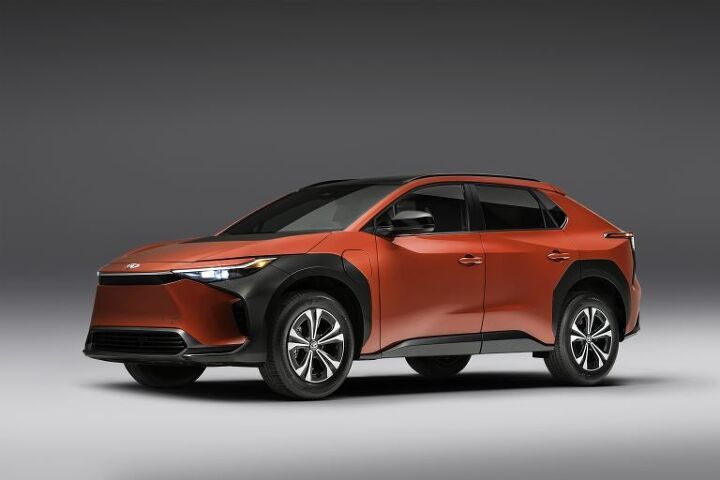
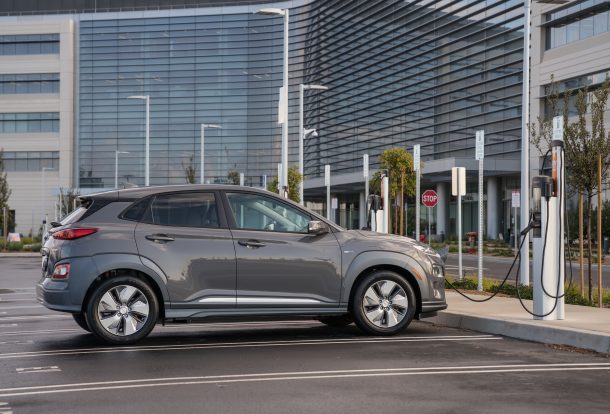
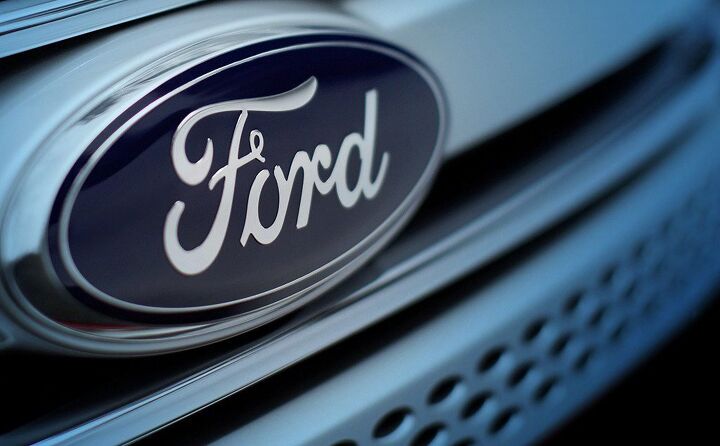


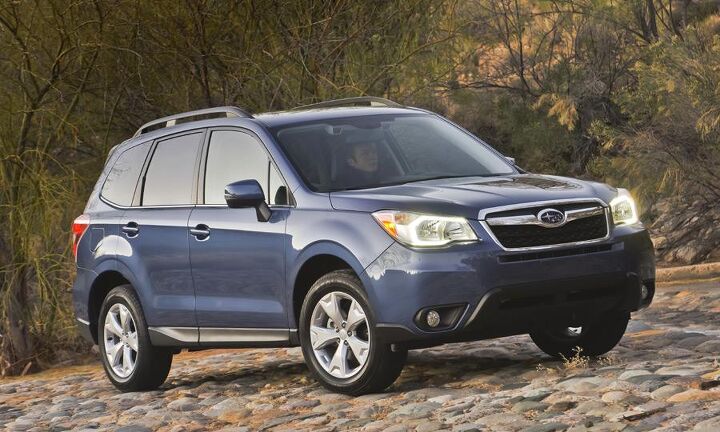
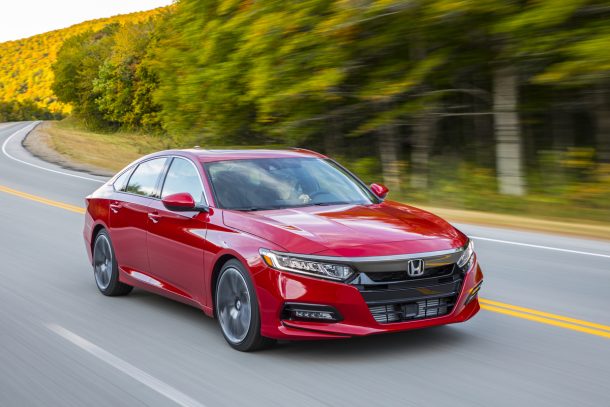
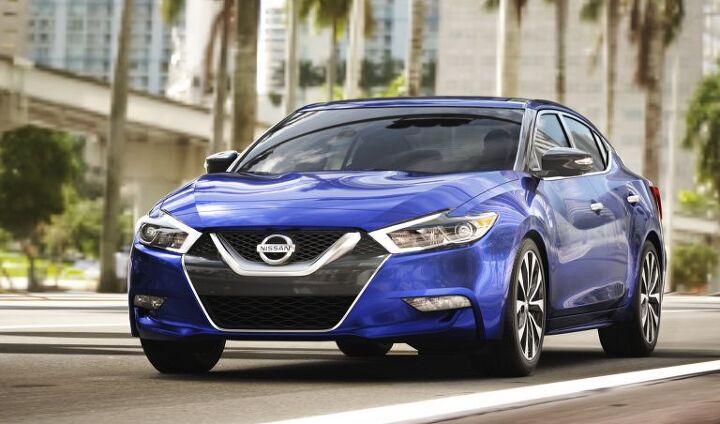

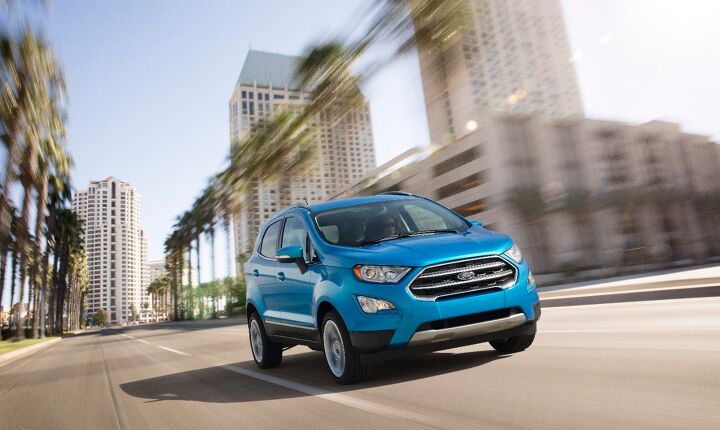
















Recent Comments